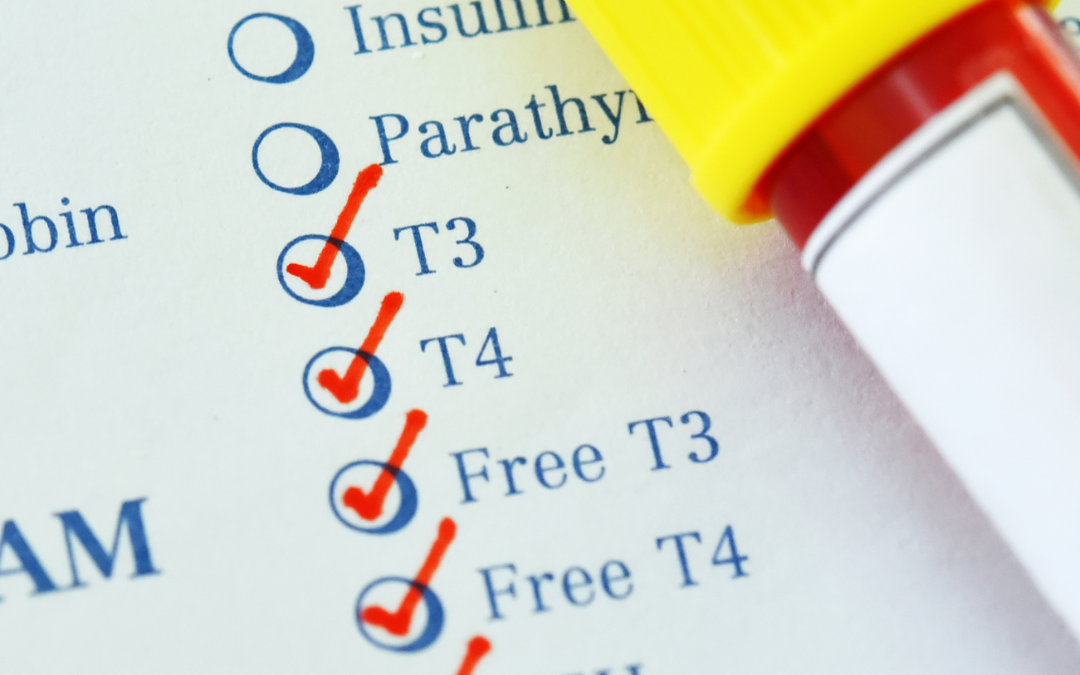The human body is an intricate and complicated web of processes, and the thyroid gland plays a crucial role in maintaining its delicate balance. Yet thyroid-related issues, such as hypothyroidism and thyroid disease, seem to be on the rise. Let’s take a look at what’s causing thyroid conditions and why are they occurring?
The Thyroid’s Vital Role
Before we dive into the causes, let’s understand the thyroid’s role. This sensitive little gland lives in the neck, and is responsible for producing hormones that regulate metabolism, energy levels, and various bodily functions. It’s a small powerhouse that plays a significant role in maintaining overall health.
Autoimmune Disorders: A Common Culprit
Hypothyroidism, the condition characterized by an underactive thyroid gland, is often linked to autoimmune disorders. The most common one is Hashimoto’s thyroiditis, where the immune system mistakenly attacks the thyroid tissue. This relentless assault disrupts the gland’s ability to produce enough hormones, resulting in a range of symptoms including fatigue, weight gain, and depression.
Iodine Deficiency & Iodine Blocking
Iodine, a mineral we must get from our diet, is a key ingredient in thyroid hormone production. A deficiency in iodine can hinder the thyroid’s ability to synthesize hormones, leading to thyroid enlargement (known as goiter) and even hypothyroidism. While iodine deficiency is less common in developed countries due to iodized salt, it remains a global health concern.
Iodine is similar in structure to other compounds in our environment- chlorides, bromides and flourides. Unfortunately, the thyroid gland isn’t very good at telling the difference between them, so sometimes these compounds block the receptors where iodine should go, impairing the production of thyroid hormones. These 3 chemicals are often added to water, food and household chemicals, which means thyroid problems are on the increase.
Genetic Predisposition: Family Matters
Genetics often play a role in predisposing individuals to thyroid disorders. If someone in your family has thyroid disease, you might be at a higher risk. Specific genetic mutations have been identified that increase susceptibility to thyroid-related conditions, making it even more important to know your family health history.
Stress & Hormonal Imbalances
Chronic stress can wreak havoc on the endocrine (hormonal) system, including the thyroid. The delicate balance of hormones is easily disrupted when the body is under prolonged stress, leading to a domino effect on various other systems. Managing the stress response and impact on the body should not be underestimated when it comes to treating thyroid conditions.
Environmental Factors
Environmental toxins, such as certain chemicals found in plastics and pollutants, have been linked to thyroid dysfunction. These compounds, known as endocrine disruptors, interfere with hormone production and regulation, potentially contributing to the development of thyroid issues. Unfortunately, we are exposed to an ever-increasing number of potential endocrine disruptors every day from body products, household products, and chemicals in our outdoor environments – the air we breathe and the water we swim in.
Read more about toxins that mess with your hormones.
Hypothyroidism and thyroid disease are complex conditions with multifaceted causes. Understanding the underlying factors is important in order to empower proactive steps towards better thyroid health. It’s definitely NOT a one-size-fits-all approach as simple as taking Thyroxine (thyroid hormone replacement). While genetics and some factors may be beyond our control, lifestyle choices, stress management, nutrient levels, and body toxic burden reduction (aka detoxification), can make a significant difference towards living well with a thyroid diagnosis.
If you suspect thyroid issues or experience persistent symptoms like fatigue, weight changes, or mood swings, that can’t be answered for in other ways, then getting a true picture of thyroid function is important. TSH on it’s own is not enough! A comprehensive thyroid investigation including Iodine levels, Free T4 and Free T3, Reverse T3, Thyroid Antibodies is the minimum first step. Then, knowing how to interpret the results in the context of your individual experience and personal story is where wholistic medicine shines.
I can help you unravel the mystery behind how you are feeling, what is going on with thyroid hormones and what to do about it. I’d love to share my knowledge and experience with you so you can start looking forward to a healthier, happier future.



